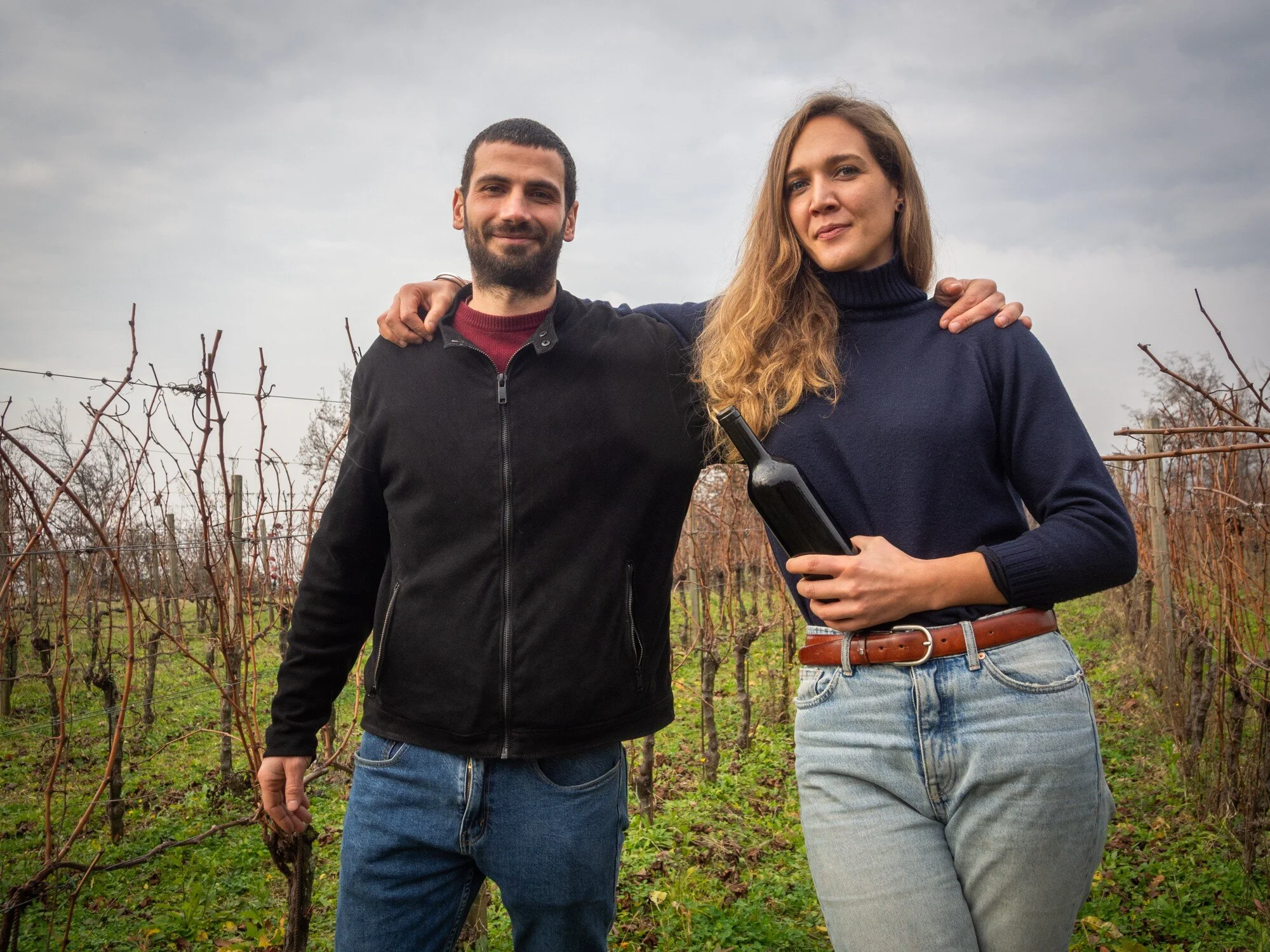Behind the vine
Laura Cugini - Corti - Cugini - Franciacorta, Italy
When do you think you fell in love with wine, enough to make a career of it?
My family is not involved in wine, but wine is part of the culture in Italy. We're in touch with wine from a very young age; so, I was very curious about wine. I decided to study winemaking in university and immediately fell in love. I did my first harvest in New Zealand, and it was such a great experience. What impressed me was the flavour of Sauvignon Blanc was so clear and strong, so different from local varieties in Italy. I realised that wine wasn't exclusive to certain regions, it wasn't just tradition and history. I thought immediately I could never stop working in wine.
Since then, I’ve traveled, worked and lived in wine regions in many different countries in the world. Having traveled so much, I really wanted to have roots and go back to my home, my town, my friends and my family. I learnt that building something that will last for life is braver than traveling around the world. So, I met a friend who was renting a very small parcel and doing everything by hand in Franciacorta, in a vineyard off the beaten track. We decided to start this project together. Him in the vineyard, me doing wine.
What story does your wine tell?
I think the first thing is a strong relationship with nature and time. Then it’s about belief, this is the biggest change I’ve done in my life, so I want people to take away that when you have tenacity and passion, you can make your dreams come true.
Talking about the wine itself - we’re creating something that's not common, but still maintains the elegance and sensitivity behind Franciacorta. Every important region is made up of different thinkers. Franciacorta is becoming more and more interesting with some new, small wineries doing innovative things. And our area is part of the wine itself. We want to have a small production, but show a deep care for the vineyard and the wine to deliver something close to nature and in touch with local people.
In addition to the classic Franciacorta made in method Champenoise, we’re experimenting with local varietals.
“The message winemakers should help get out there is that wine is for sharing: sharing and celebrating emotions and moments that help you enjoy life.”
— Laura Cugini
What misconceptions about wine do you think people should forget?
There are a lot of misconceptions! Even with people involved in wine. This is part of our idea for the winery: we believe wine should be for everyone. 50-70 years ago in Italy, wine was a part of every meal, every day, for every family. I don't want to say it's not important to create wine as something more, but it shouldn't be as exclusive as it is.
Even for a winemaker like me: I've been studying and working in this field to get to the point where I can make that possibility a reality. It's part of our job to become a bit more easy, accessible, approachable. The message winemakers should help get out there is that wine is for sharing: sharing and celebrating emotions and moments that help you enjoy life.
What great things about wine do you think people should remember?
My partner in the winery always says, remember that we are farmers. Sometimes nature is even stronger than us. Good wines require a serious background, a lot of risk, and a lot of hard work in the vineyards. Before working in our own winery, I had never really realised this. Until you're on the vineyard every day, you can't realise. But the great work of a lot of people is behind the bottle. The reward of drinking will be greater for everyone if people start to realise what is behind a bottle of wine.
What is a piece of advice you would give to a woman interested in breaking into the wine world?
Never give up. Especially if you don't have a family running a winery or doing something involving wine, and especially if you're from traditional places. It's a masculine world. All the wine countries where you have traditional ideas, it's harder to include women. So you need to be twice as good as a man, so you work twice as hard. But keep going! It's an amazing job that's unique and so particular to you. It can give you so many emotions. When you start to realise how any countries, terroirs, winemakers, varieties, it's impressive and you never know enough about wine. You always learn. It's very challenging and exciting at the same time.
Where can women find your wine?
We haven’t bottled our first wines yet, but they will be sold around the world.



